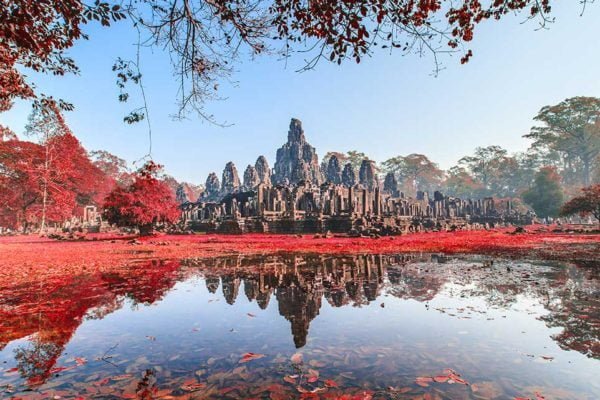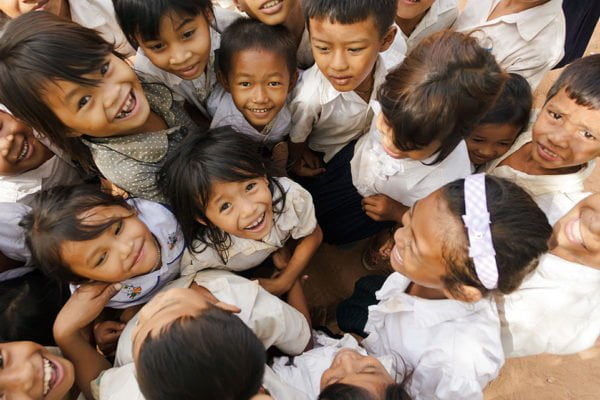Cambodia Travel Safety: What Every Tourist Should Know Before Visiting
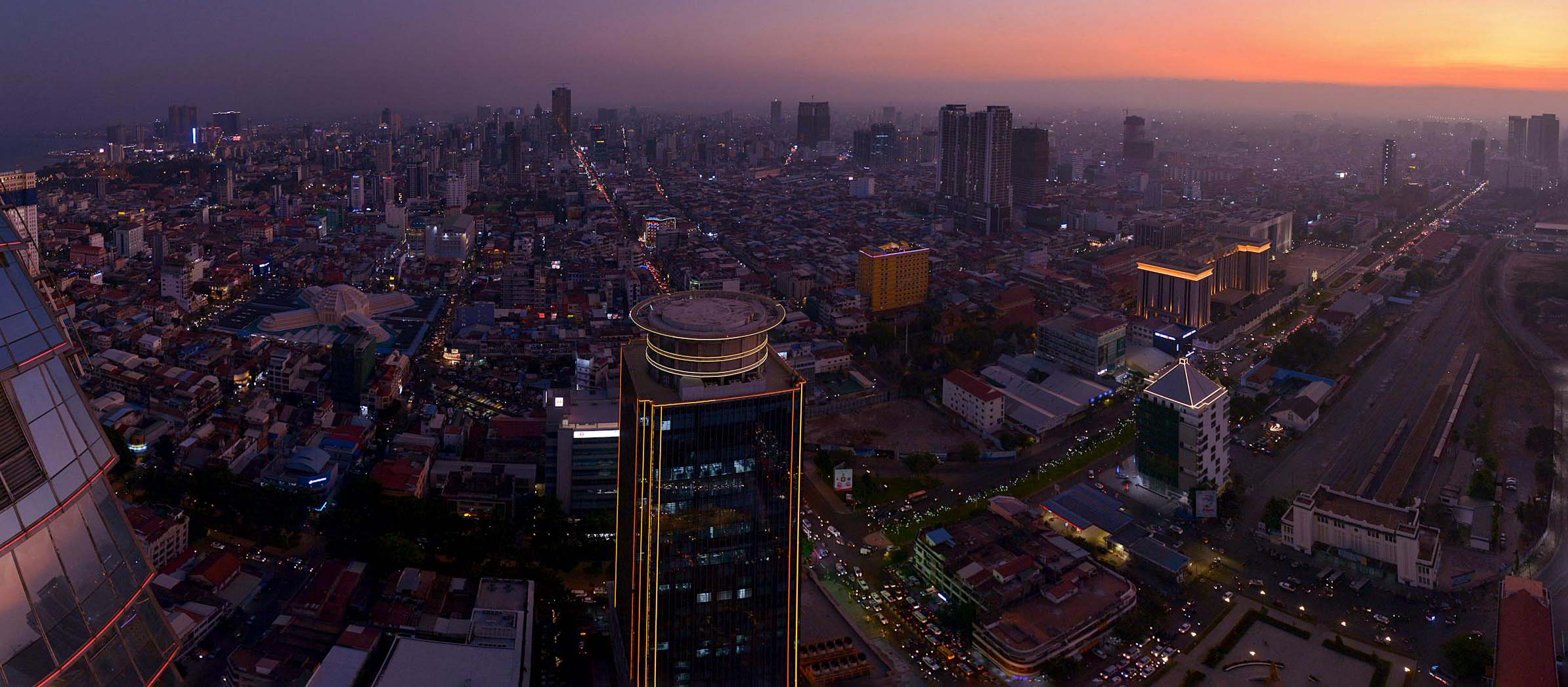
Thinking of traveling to Cambodia but unsure if it’s safe? You’re not alone. For years, Cambodia has been painted with a brush of uncertainty, linked to its war-torn past, landmine legacy, and reports of petty crime. But how true are these concerns today?
In this comprehensive Cambodia travel safety guide, we’ll dive into what you really need to know before your Cambodian trip. From avoiding common tourist traps to understanding local laws and cultural etiquette, this article helps you stay safe, confident, and thoroughly enjoy the incredible experience Cambodia has to offer.
Is Cambodia Safe For Tourists Now?
Cambodia has made impressive strides in tourism development over the last decade. In 2024 alone, over 2 million tourists visited Cambodia in the first half of the year, according to the Ministry of Tourism. This increase signals growing confidence in Cambodia as a safe and accessible travel destination. Most visitors explore popular locations like Siem Reap, Phnom Penh or Kampot without any incidents. Violent crime is rare, locals are generally warm and welcoming, and infrastructure continues to improve steadily. That said, as with any destination, staying aware, informed, and culturally sensitive plays a key role in minimizing risks.
What You Should Know About Cambodia Travel Safety
Landmines & Unexploded Ordnance (UXO): Real Concern or Dated Fear?
Cambodia’s reputation for landmines stems from its troubled history under the Khmer Rouge and subsequent conflicts. While it’s true that UXO still exists in some remote provinces, tourist zones are safe and thoroughly cleared.
Safety Tips:
- Stick to marked paths when visiting ancient temples or rural ruins.
- Avoid hiking solo in isolated forest regions unless with a certified guide.
- Visit the Cambodian Landmine Museum near Siem Reap to learn more and support education efforts.
According to MAG (Mines Advisory Group), thousands of landmines have been cleared from Cambodia. The chance of encountering one as a tourist is now extremely low, especially if you’re following well-known routes.
Cambodia Travel Safety on the Roads
Why It’s a Concern:
Road travel poses Cambodia’s biggest safety challenge. Loose traffic enforcement, poor road conditions, and aggressive motorbike behaviour can surprise unprepared tourists.
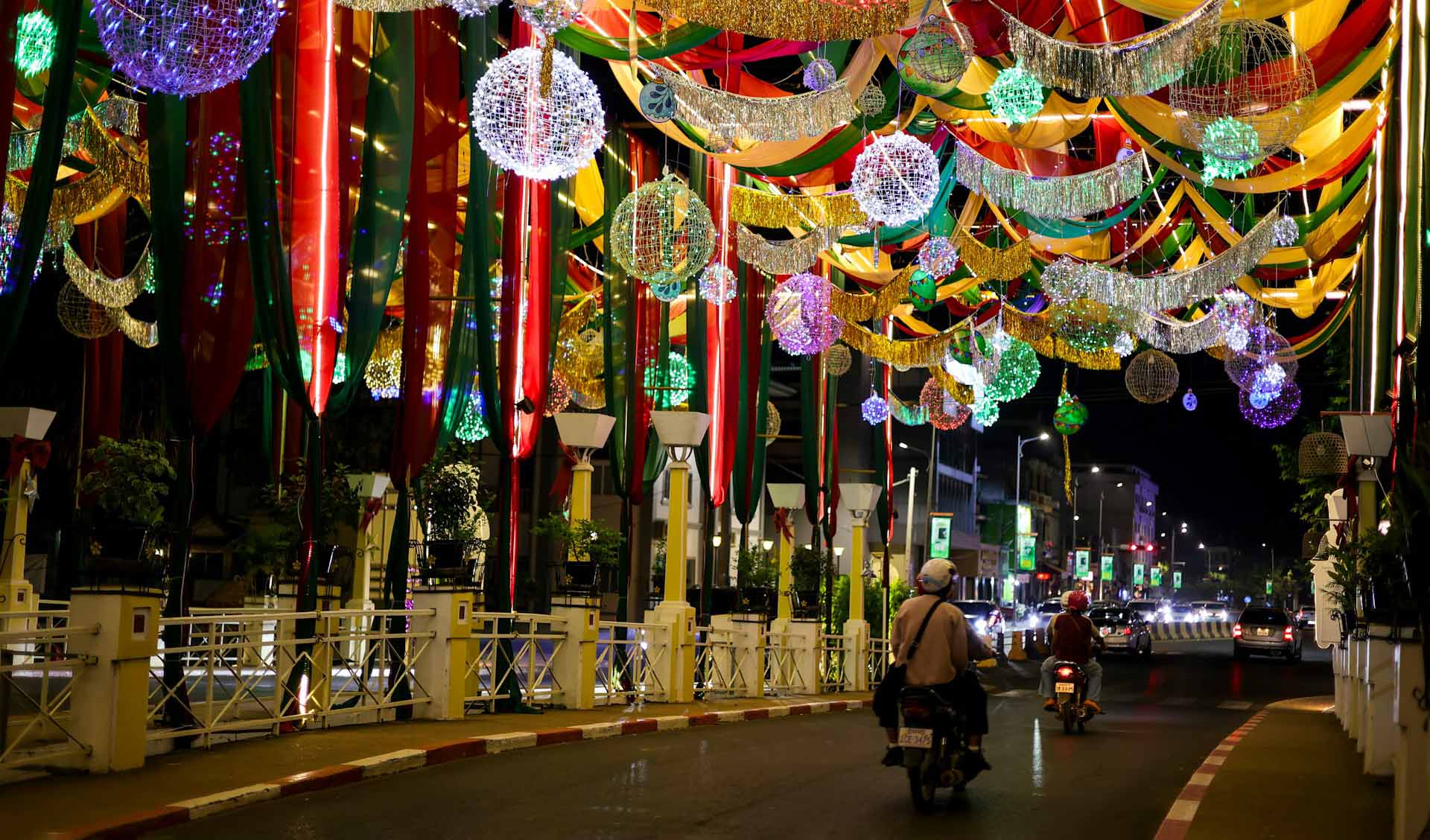
Cambodia street at night
What You Might See:
- Families of five squeezed onto a single scooter.
- Vehicles overtaking on blind curves.
- Night buses speeding over pothole-ridden highways.
How to Stay Safe:
- Use ride apps like Grab or PassApp to ensure fixed prices and registered drivers.
- Avoid night buses unless you book with reputable firms like Giant Ibis or Virak Buntham.
- Always wear helmets on motorbikes, even for short distances.
- Crossroads slowly and confidently—locals are used to weaving around pedestrians.
If you’re unsure about traveling independently, guided tours or private car hires can be a safer (and affordable) alternative.
Food & Water Safety: Can You Eat Street Food?
Cambodia’s cuisine is one of its strongest cultural offerings. From fragrant fish amok to crispy fried tarantulas (if you’re feeling adventurous), the food scene is rich and flavourful.
To Stay Healthy:
- Choose busy street stalls—high turnover = fresh ingredients.
- Eat food that’s cooked hot in front of you.
- Peel fruits yourself and avoid pre-cut ones sold from carts.
- Only drink bottled or filtered water.
- Carry oral rehydration salts and Imodium or activated charcoal for emergencies.
Even high-end restaurants may use tap water in their ice or cooking, so be cautious. For longer trips, consider bringing a reusable water bottle with a built-in filter, such as the Grayl or Lifestraw.
>> Read More: Exploring the Best of Street Food in Phnom Penh
Petty Crime, Scams & How to Outsmart Them
While violent crime is rare, petty theft and scams can affect tourists, especially in Phnom Penh and Sihanoukville.
Common Scenarios:
- Bag snatching by thieves on motorbikes.
- Tuk-tuk overcharging (or “wrong change” tricks).
- “Milk scams” involve women with babies seeking assistance.
- Fake orphanages or charity tours seeking donations.
How to Stay Safe:
- Use cross-body bags and keep zippers facing in.
- Walk on the side away from the road to avoid drive-by snatching.
- Avoid taking your phone out near the roadside or open tuk-tuks.
- Say no politely and firmly to beggars or unofficial guides.
- Don’t flash large amounts of cash or wear expensive jewellery.
Use ATM machines inside bank branches and notify your bank of your travel plans to avoid card blocks.
Nightlife & Alcohol Safety: What’s the Vibe?
Cambodia’s nightlife varies by region. While Siem Reap’s Pub Street is lively but largely safe, Sihanoukville’s casino strip is known for shady dealings and increased risk.
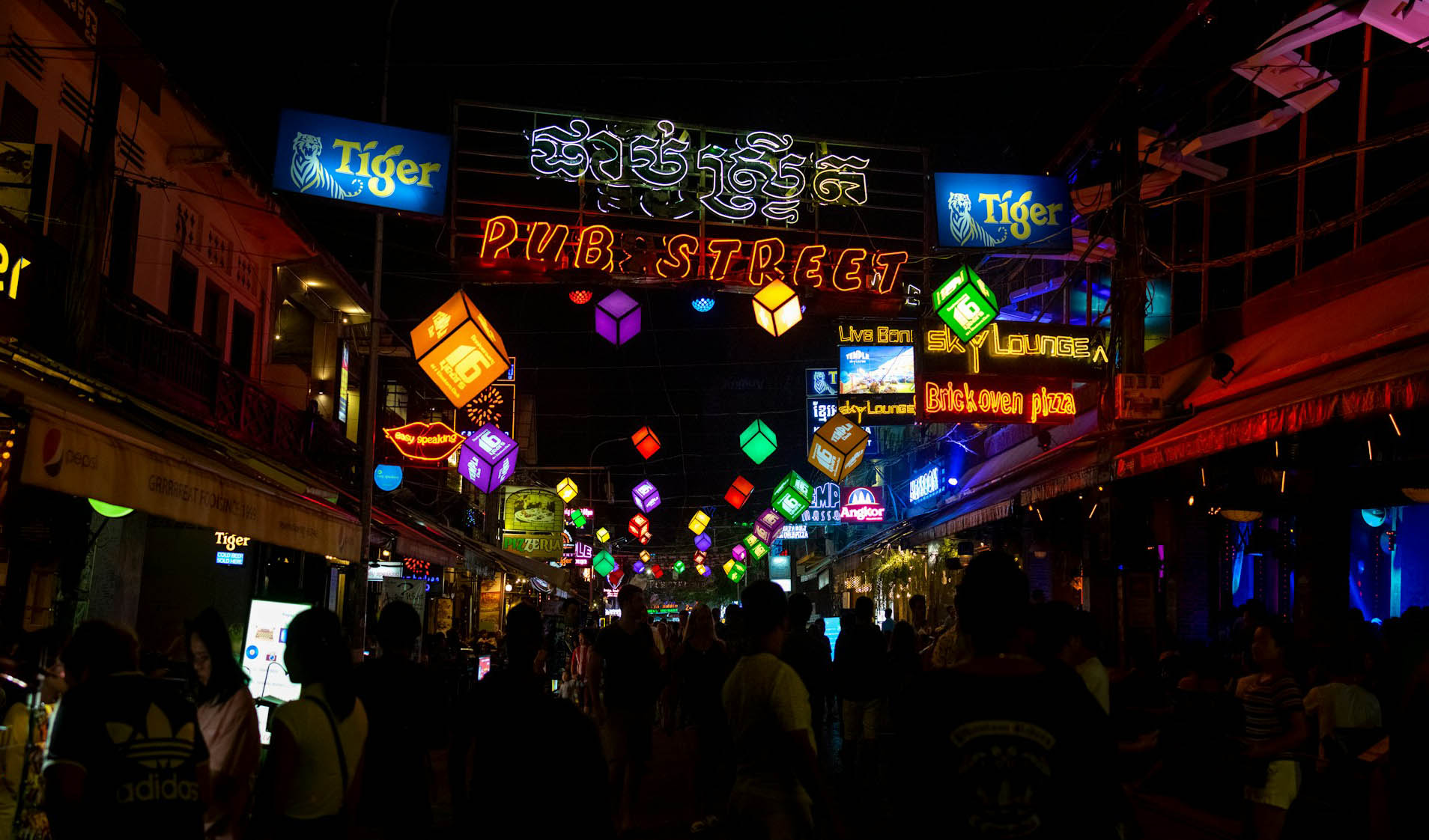
Pub street nightlife in Cambodia
Stay Smart When Going Out:
- Watch your drinks—spiking can happen, especially in unregulated venues.
- Stay with people you trust.
- Avoid late-night beach parties in secluded areas.
- Don’t walk alone late at night—use ride apps to return to your hotel.
- Cambodia has strict drug laws—even small quantities can result in arrest or deportation.
- Avoid using ATMs in nightlife zones late at night; opt for ones inside banks or hotels.
- Stay alert in clubs—drink spiking has been reported in rare cases.
Stick to well-reviewed bars and clubs. Many hostels organize group nights out, which is a great way to socialize safely.
Healthcare in Cambodia: What to Expect
Cambodia’s healthcare system is improving, but rural clinics may lack modern facilities.
Health Risks:
- Dengue fever (especially during rainy season).
- Heatstroke and dehydration.
- Traveler’s diarrhea.
- Mosquito-borne diseases in jungle regions (malaria risk is low in cities).
Recommended Vaccinations:
- Tetanus.
- Hepatitis A & B.
- Typhoid.
- Rabies (for long stays or jungle treks).
Reliable Medical Centers:
- Royal Phnom Penh Hospital (Phnom Penh).
- Royal Angkor International Hospital (Siem Reap).
- International SOS (Phnom Penh).
Tips:
- Pack a first-aid kit: painkillers, bandages, bug spray, stomach meds, antihistamines.
- Purchase travel insurance with emergency evacuation coverage—this is non-negotiable for smart travellers.
- In rural areas, access to emergency medical care may be hours away, so be cautious during treks or jungle trips.
Weather, Seasons & Safety Considerations
Cambodia has two seasons:
- Dry (Nov–April): Peak tourist season, less mosquito activity.
- Wet (May–Oct): Lush countryside, but slippery roads, flooding, and dengue risk increase.
Wet Season Hazards:
- Flash flooding in Phnom Penh (wear waterproof shoes!).
- Motorbike accidents increase.
- Mosquito-borne illnesses are more common.
If visiting in the wet season, pack:
- Light rain jacket.
- Waterproof bag covers.
- Strong mosquito repellent.
>> Read More: Best Time To Visit Cambodia
Respecting Local Laws & Culture
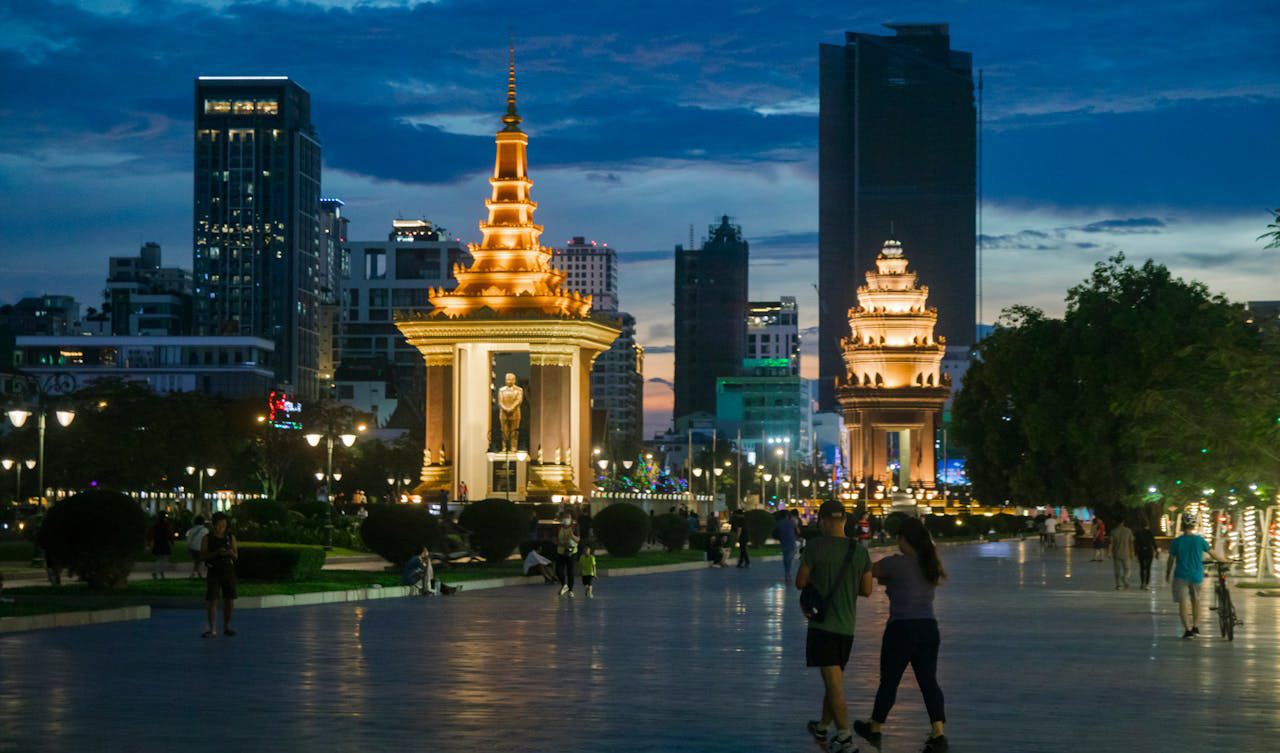
Respecting local customs ensures not only a safe experience but also a more enjoyable and immersive one.
What to Know:
- Cambodia is over 90% Buddhist—monks, temples, and religious statues are highly revered.
- Always ask before taking photos of people or monks.
- Avoid public anger or shouting—it’s seen as a loss of face and is culturally offensive.
Dress & Behavior:
- In temples: wear sleeves, no short skirts or shorts.
- Never touch someone’s head—it’s considered sacred.
- Remove your shoes when entering someone’s home or a temple.
Understanding and honouring these unspoken rules keeps you safer and improves your experience.
Connectivity & Digital Safety
Getting online in Cambodia is easy. Here are what you should keep in mind:
- SIM cards: Metfone, Smart, Cellcard.
- Cost: ~$5–10 for 10–20GB.
- Free Wi-Fi: Available in most cafés, hostels, and even some night buses.
Safety Tips:
- Use a VPN when accessing sensitive data on public networks.
- Set up emergency contacts in Google Maps and phone.
- Join Facebook groups like “Expats and Travelers in Cambodia” for live updates.
City-by-City Safety Snapshot
City | Current Advisory / Risk Level |
Phnom Penh | Exercise increased caution. Phone- and bag-snatchings are the most common threat, especially along the riverside, BKK1, and popular nightlife streets. Keep valuables tucked inside cross-body bags and walk on the side furthest from traffic |
Siem Reap | Generally low risk for violent crime; petty theft does occur in busy markets and pub streets. Tourist infrastructure is strong, and police presence is visible around Angkor Archaeological Park. |
Sihanoukville | Listed by Canada and Australia as an area with heightened petty and organised crime, including employment scam compounds and casino-linked fraud. Stay near well-reviewed beach resorts, and avoid late-night walks around the port and casino strip. |
Kampot/Kep | No specific foreign-office warnings beyond the national advisory; travellers and bloggers routinely rate the twin towns as very safe, citing laid-back nightlife and low street crime. Normal precautions—locking motorbikes, guarding phones—still apply. |
There is more advice from the trustworthy government websites of United States of America, Canada, Australia, or United Kingdom, and you can:
- Check the date on each advisory before you go; government pages refresh regularly.
- Risk levels can change during festival weeks or political events—monitor local news and your embassy’s alerts for updates.
>> Read More: From Waterfalls To Temple – 9 Exotic Places To Visit in Cambodia
Female & LGBTQ+ Traveler Safety
Female Travelers:
- Modesty in dress earns respect.
- Catcalling is rare but possible in cities—ignore and move on.
LGBTQ+ Travelers:
- Same-sex relationships are legal and largely accepted.
- Public affection (of any kind) is uncommon but not dangerous.
Practical Take-aways
- Targeted petty theft is still the top issue in Phnom Penh and Sihanoukville: hold bags inward, keep phones off the roadside, and use ride-hailing apps at night.
- Tourist hubs like Siem Reap remain statistically the safest urban areas, yet crowded night markets invite pickpockets—wear money belts or hidden pouches.
- Coastal and river towns (Kampot, Kep) present minimal crime but limited policing—lock guest-house doors and avoid unlit riverfront walks after midnight.
- Organised scam compounds now cluster on the outskirts of Sihanoukville and Poipet; do not respond to unsolicited job offers and report any suspicious approaches to local police or your consulate.
- Land-mine risk is negligible inside these cities; it only rises in remote rural trekking zones.
>> See Tour: The Very Best Of Cambodia
Ready For Your Cambodia Trip?
Travel safety in Cambodia has improved significantly over the years. Whether you’re exploring the ancient corridors of Angkor Wat or enjoying a coconut by the Mekong River, the Kingdom of Wonder provides a rich and rewarding experience with minimal risk if you travel smartly.
Stay informed, respect the local culture, and plan ahead with Asia Pioneer Travel. By taking a few precautions, you’ll discover that Cambodia is not only safe but also unforgettable.

